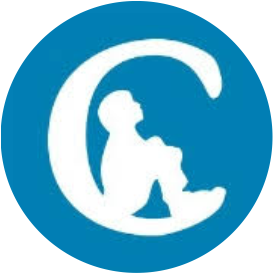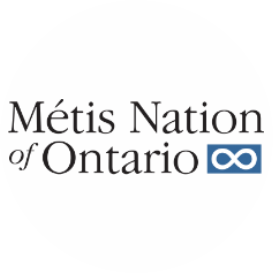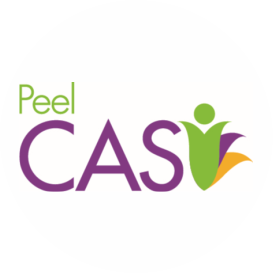Privacy Policy
Horse Therapy Centre of Canada is committed to protecting your privacy
PRIVACY POLICY
Privacy of personal information is an essential principle at Horse Therapy Centre of Canada (HTCC). We are committed to collecting, using, and disclosing personal information responsibly and only to the extent necessary for our goods and services. We also try to be open and transparent about handling personal information. This document describes our privacy policies.
WHAT IS PERSONAL INFORMATION?
The term “personal information” has the same meaning as set out in the federal Personal Information Protection and Electronic Documents Act, 2011 (“PIPEDA”), and means any information about an identifiable individual, including, but not limited to, contact information, name, address, phone number or email address, gender, and date of birth.
The term “personal health information” has the same meaning as set out in Ontario’s Personal Health Information Protection Act, 2004 (“PHIPA”), and includes information relating to your physical or mental health, as well as your health history, medical records, prescriptions, and your health number.
In this Privacy Policy, the term personal information also encompasses personal health information. Any information that has been collected in which all personal identifiers have been removed, such that the information could not reasonably be used to identify the individual, is not considered personal information or personal health information.
WHO ARE WE?
HTCC is a farm-based group private practice and includes a number of psychotherapists, qualifying psychotherapists, social workers, aba therapists, bcbas, students from many disciplines, and administrative staff. We also use a number of consultants and agencies that may, in the course of their duties, have limited access to the personal information we hold. These include supervisors, bookkeepers and accountants, insurance companies, credit card companies, and lawyers. We restrict their access to any personal information as much as is reasonably possible. We also have their assurance that they follow appropriate privacy principles.
CONSENT
HTCC will obtain your consent prior to collecting any Personal Information (see the “Consent to Assessment and Treatment” document). However, we may need to collect, use, and disclose your personal information without your consent only in limited circumstances as permitted by law. Situations under which information may be released without your consent, include:
Harm to self: If your associate has reason to believe that you are in danger of physically harming yourself in ways that may be life-threatening, s/he will have to make a referral to a hospital and/or contact a family member, close other, or another person such as a police officer or emergency services who may be able to help protect you.
Harm to other: If your associate has reason to believe that you are seriously threatening physical violence against another person, or if you have a history of physically violent behaviour, and if s/he believes that you are an actual threat to the safety of another person, s/he is required to take some action (such as contacting the police, notifying the other person, seeking hospitalization, or some combination of these actions) to insure that the other person is protected.
Abuse/Neglect: 1) If your associate has reason to believe that a child under the age of 16 is being abused or neglected, s/he is legally obligated to report this situation to the appropriate authorities. 2) If your associate suspects or is informed of unlawful conduct that resulted in harm or risk of harm to a resident of a Long Term Care Facility or Retirement Home, or that a resident is being harmed or is at risk of being harmed in any way (e.g., sexual or physical abuse, neglect, misappropriation of resident’s funds), s/he is required to contact Ontario Ministry of Health and Long-Term Care or Retirement Homes Regulatory Authority and report all relevant information.
Quality Control: As part of the College of Psychologists of Ontario’s Quality Assurance Program, on occasion, your associate may be selected to participate in a Peer Assisted Review. As part of this process, your file may be potentially reviewed by another member of the College. The College has confidentiality policies in place to protect your information.
Sexual Assault: If you have been sexually abused by a member of a regulated health profession, this information must be reported to the appropriate regulatory body. Your associate will not give your name without your permission.
Court Order: Your associate and their records can be subpoenaed by a court order, now or in the future, and s/he can be required to testify and give information obtained during sessions. If your file is subpoenaed by a court of law, your therapist is required to release the file to the court.
The exceptions to confidentiality are rare. However, if they should occur, whenever possible, your associate will discuss with you any action that is being considered. There are times, however, when your associate may have to disclose information without speaking with you prior, especially if such a discussion would prevent them from securing your safety or the safety of others. We would always take appropriate measures to ensure that the requester understands the sensitive nature of the personal information that they may receive.
We will obtain your consent before collecting, using, or disclosing your personal information for new purposes unrelated to the purposes described in this Privacy Policy.
In certain cases, you may choose not to provide us with some or all of your personal information. However, should you choose not to provide necessary personal information to us, that may impact your ability to interact with us or for us to provide you with certain services.
You may withdraw your consent at any time in writing. Please contact our Privacy and Information Officer listed below to find out how.
TYPES OF PERSONAL INFORMATION THAT WE COLLECT
We collect the following types of personal information about you for the purposes of delivering psychological services, billing, and administration:
- Your name
- Your contact information, emergency contact information, date of birth;
- A description of your concerns/symptoms
- Your health history, including family history, physical condition and function and social situation, in order to help us assess mental health needs
- Your clinician preferences, and the clinician booked with;
- Insurance coverage and payment information
- The services you received – number of sessions, dates, etc.
- Communication between you and your therapist
- Clinical notes and records of assessment information and data relating to your treatment
- Data from self-report measures and other psychological testing
- Other related or similar information.
WE COLLECT PERSONAL INFORMATION: PRIMARY PURPOSES
About Clients
HTCC collects, uses, and discloses personal information only to provide psychological services to our clients. We collect and use your personal information to communicate with you (including setting up appointments, contacting you as needed, etc.), to deliver services and treatment to you, and to provide ongoing service and support. For example, we collect information about a client’s health history, including their family history, physical condition and function, and social situation in order to help me assess what their health needs are, to advise them of their options, and then provide the health care they choose to have. A second primary purpose is to obtain a baseline of health and social information so that in providing ongoing health services we can identify changes that occur over time.
In some situations, the primary purpose of collecting personal information would be to conduct an assessment to provide a professional opinion about an individual’s psychological functioning. With the client’s consent, the opinion would be reported to the appropriate person or agency, for example, an insurance company, Workplace Safety and Insurance Board, psychological/legal reports, or rehabilitation companies.
It would be rare to collect such information without the client’s express consent, but this might occur in an emergency (e.g., the client is unconscious) or where we believe the client would consent if asked, and it is impractical to obtain consent (e.g., a family member passing a message on from a client that we have no reason to believe is not genuine).
About Members of the General Public
For members of the general public, our primary purposes for collecting personal information (e.g., contact telephone numbers) are to provide notice of special events (e.g., a seminar or conference) or to make them aware of psychotherapeutic, educational, and other services in general, or HTCC in particular, and to direct prospective clients to the appropriate associate.
On our website, HTCC only collects, with the exception of cookies, the personal information you provide and only uses that information for the purpose you gave it to us (e.g., to respond to your email message). Cookies are only used to help you navigate our website and are not used to monitor you.
About Contract Staff, Volunteers and Students
For individuals who are contracted to do work for us (e.g., temporary workers), our primary purpose for collecting personal information is to ensure we can contact them in the future (e.g., for new assignments), background and criminal record checks, and for necessary work-related communication (e.g., sending out paycheques, year-end tax receipts). Examples of the type of personal information we collect for those purposes include home addresses and telephone numbers. It is rare for us to collect such information without prior consent, but it might happen in the case of a health emergency or to investigate a possible breach of law (e.g., if a theft were to occur in the clinic). If contract staff, volunteers, or students wish for a letter of reference or an evaluation, we will collect information about their work-related performance and provide a report, as authorized by them.
WE COLLECT PERSONAL INFORMATION: RELATED AND SECONDARY PURPOSES
Like most organizations, we also collect, use, and disclose information for purposes related to, or secondary to, our primary purposes. The most common examples of related and secondary purposes are as follows:
- To invoice clients for services that were not paid for at the time, to process credit card payments or to collect unpaid accounts.
- The cost of some services provided by the organization to clients is paid for by third parties (e.g., WSIB, private insurance). These third-party payers often have your consent or legislative authority to direct us to collect and disclose to them certain information in order to demonstrate client entitlement to this funding.
- Our associates are regulated by the College of Psychologist of Ontario, who may inspect our records and interview staff as a part of their regulatory activities in the public interest. The College of Psychologists of Ontario has its own strict privacy obligations and policies.
- We will report serious misconduct, incompetence or incapacity of other practitioners, whether they belong to other organizations or our own. External regulators have their own strict privacy obligations. Sometimes these reports include personal information about our clients, or other individuals, to support the concern (e.g., improper services).
- Like all organizations, various government agencies (e.g., Canada Customs and Revenue Agency, Information and Privacy Commissioner, Human Rights Commission, etc.) have the authority to review client files and interview staff as a part of their mandates. In these circumstances, we may consult with professionals (e.g., lawyers, accountants) who will investigate the matter and report back.
PROTECTING PERSONAL INFORMATION
We understand the importance of protecting personal information and are committed to protect the security of your personal information. We have put in place commercially reasonable physical, electronic, and managerial procedures to safeguard and help prevent unauthorized access, maintain data security, and correctly use your personal information. Your personal information may be stored on our database servers or hosted by third parties who have entered into agreements with us that require them to observe our Privacy Policy. Data centers are designed to be physically secure and protected from unauthorized access by unauthorized persons. Although we will make reasonable efforts to protect personal information from loss, misuse, or alteration by third parties, you should be aware that there is always some risk that an unauthorized third party could find a way to thwart our security systems.
We have taken many steps to protect your personal information, including:
- Paper information is either under supervision or secured in a locked or restricted area.
- Electronic hardware is either under supervision or secured in a locked or restricted area at all times. In addition, passwords and encryption are used on computers.
- Paper information is transmitted through sealed, addressed envelopes or boxes by reputable couriers or Canada Post.
- Electronic information is transmitted either through a direct line or has identifiers removed or is encrypted.
- Staff are trained to collect, use and disclose personal information only as necessary to fulfill their duties and in accordance with this privacy policy.
- External consultants and agencies with access to personal information must enter into privacy agreements with us.
- If your associate were to become incapacitated or die, your records would be placed in the care of another psychologist for protection, not examination. If you were to see another psychologist, your records could be sent to her or him at your request.
RETENTION AND DESTRUCTION OF PERSONAL INFORMATION
We retain your personal information only for as long as is necessary, for the purpose for which it was collected, in accordance with the ethics and standards of the Ontario College of Social Workers and Social Service Workers (OCSWSSW). We are required to retain personal information for some time to ensure that we can answer any questions you might have about the services provided and for our accountability to the OCSWSSW.
Clients or other individuals we deal with may have questions about our services after they have been received. We also provide ongoing services for many of our clients over a period of months or years for which our previous records are helpful. We retain our client information for a minimum of ten years after the last contact to enable us to respond to those questions and provide our services. The OCSWSSW and other regulatory bodies also require us to retain our client records. For clients who are seen before the age of 18, records are retained for ten years following their 18th birthday.
We destroy electronic information by deleting it and, when the hardware is replaced or discarded, we ensure that the hard drive is physically destroyed. Personal information that is not part of the permanent clinical file is shredded or otherwise destroyed or de-identified.
We retain any personal information relating to our general correspondence (e.g., with people who are not clients) newsletters, seminars, and marketing activities for five years after the newsletter ceases publication or a seminar or marketing activity is over.
YOU CAN LOOK AT YOUR INFORMATION
With only a few exceptions, you have the right to see what personal information we hold about you. Often all you have to do is ask. We can help you identify what records we might have about you. We will also try to help you understand any information you do not understand (e.g., short forms, technical language, etc.). We will need to confirm your identity, if we do not know you, before providing you with this access. We reserve the right to charge a nominal fee for such requests.
We may ask you to put your request in writing. If we cannot give you access, we will tell you within 30 days, if at all possible, and tell you the reason why we cannot give you access.
If you believe that there is a mistake in the information, you have the right to ask for it to be corrected. This applies to factual information and not to any professional opinions that we may have formed. We may ask you to provide documentation that our records are wrong. Where we agree that we made a mistake, we will make the correction and notify anyone to whom we sent this information. If we do not agree that we have made a mistake, we will still agree to include in our file a brief statement from you, and we will forward that statement to anyone else who received the earlier information.
DO YOU HAVE A QUESTION?
You may contact our Privacy Officer, Jessica Echeverri at:
Horse Therapy Centre of Canada
15443 9th Line, Stouffville, ON, L4A 3N5
Tel: 647-390-5397
Web: www.horsetherapycanada.com
We will attempt to answer any questions or concerns you might have.
If you wish to make a formal complaint about our privacy practices, please make it in writing to our Privacy and Information Officer. She will acknowledge receipt of your complaint and ensure that it is investigated promptly and that you are provided with a formal written decision.
We will assist you if you inform us that you need assistance in preparing a request concerning Personal Information. Administrative charges apply at the hourly rate of the therapist on your case, or the administrative rate for clients who are not in our therapy programs.
For general inquiries about personal information, the Office of the Privacy Commissioner of Canada oversees the administration of personal information privacy legislation. The Commissioner also acts as a kind of ombudsman for privacy disputes. The Privacy Commissioner of Canada can be reached at:
Office of the Privacy Commissioner of Canada
30 Victoria Street
Gatineau, Quebec
K1A 1H3
Phone: (819) 994-5444 or 1-800-282-1376
https://www.priv.gc.ca/en
For general inquiries about personal health information, the Information and Privacy Commissioner of Ontario oversees the administration of personal health information legislation in Ontario. The Information and Privacy Commissioner of Ontario can be reached at:
Information and Privacy Commissioner of Ontario
2 Bloor Street East, Suite 1400 Toronto, Ontario M4W 1A8 Phone: (416) 326-3333 or 1-800-387-0073 https://www.ipc.on.ca
Contact Us
Give us a call or send us an email. We are happy to help you find the right services to fit your needs.
All visits are by appointment only.
- (647) 390-5397
- office@horsetherapycanada.com
- 15443 Ninth Line Stouffville, Ontario
Who We Provide Support To

York Children's Aid Society

Toronto Children's Aid Society

Native Child and Family Services of Toronto

Catholic Children's Aid Society of Toronto

Anishinaabe Abinoojii Family Services

Métis Nation of Ontario

Jewish Family and Child Services

Victims Services Toronto

Peel Children's Aid Society

Durham Children's Aid Society

Dnaagdawenmag Binnoojiiyag Child & Family Services

